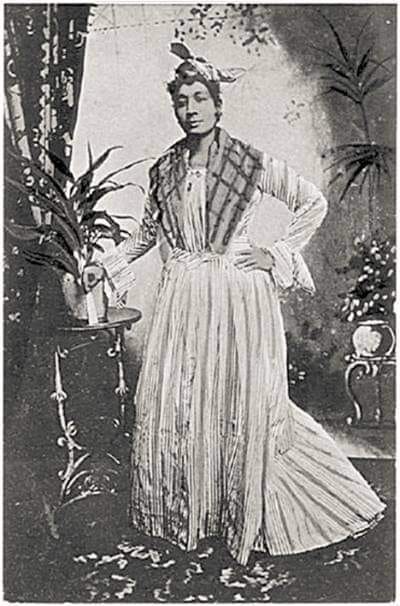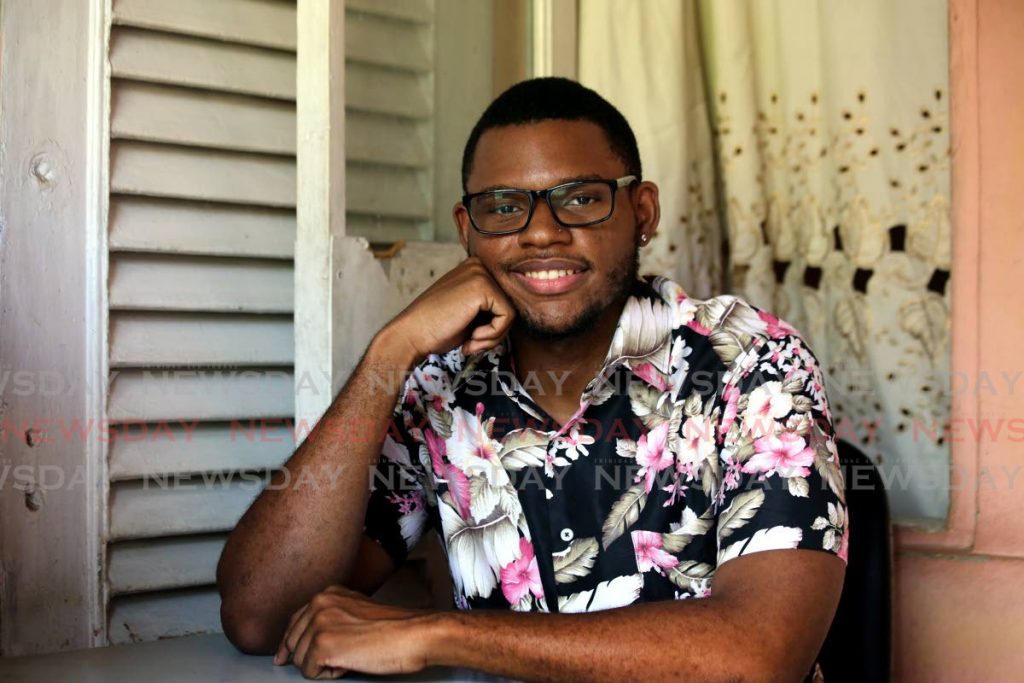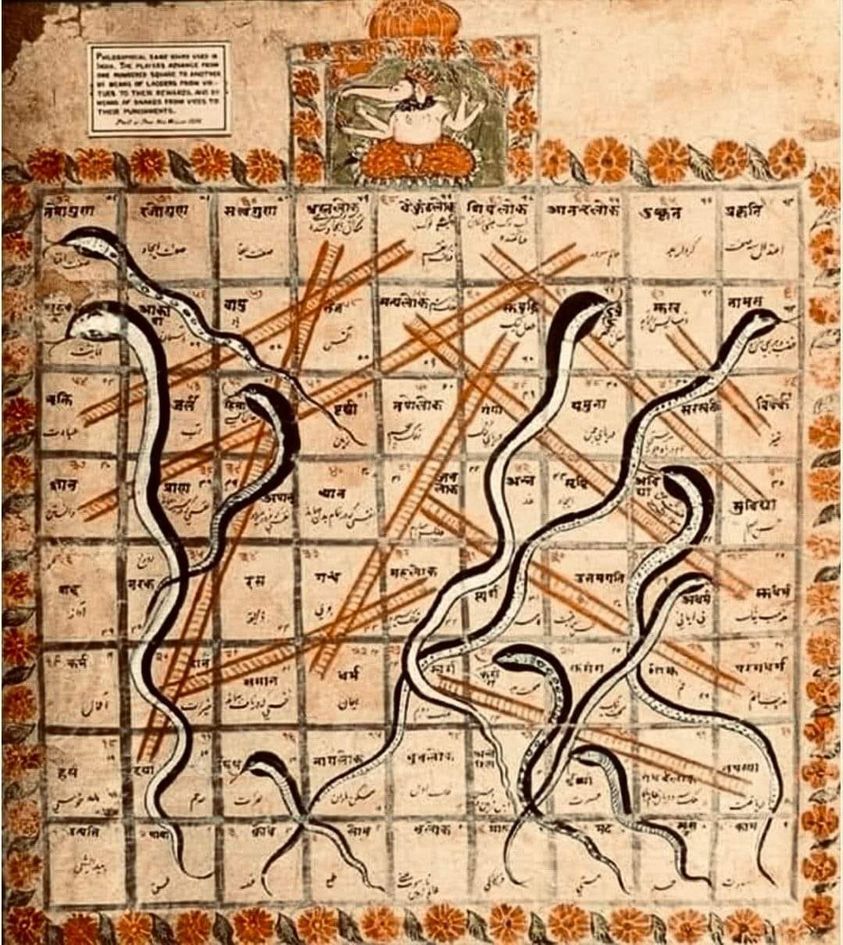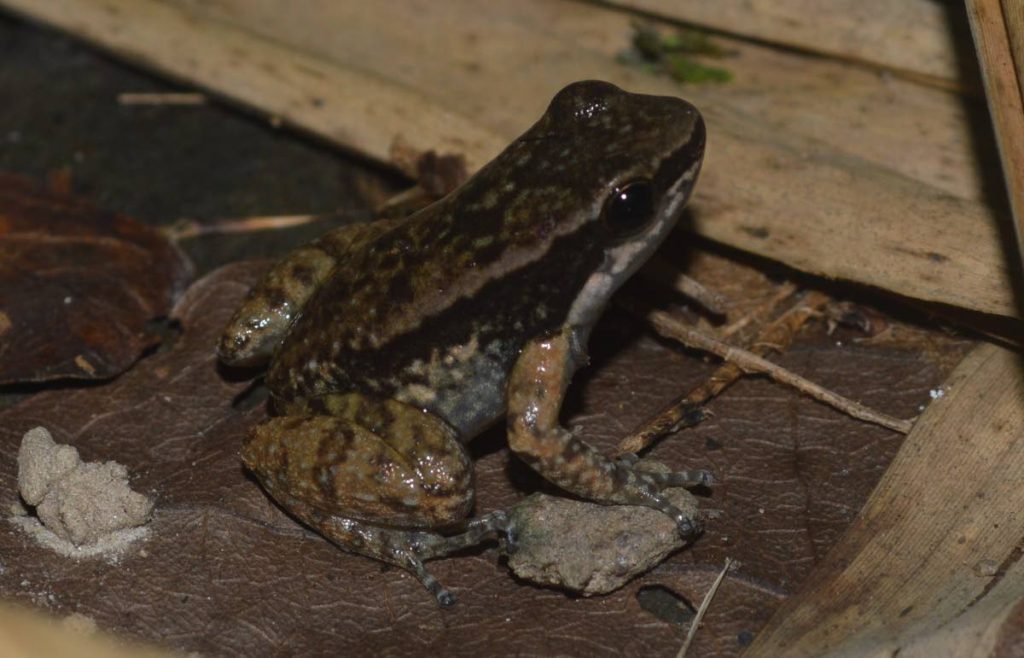|
iam Rigaud loves eating tasty pastries and other delectable baked goods.
But at times, he thinks they are too expensive to buy. So earlier this year, he started to bake his own treats to solve this problem and he even created a business in the process. Liam, nine, told Newsday Kids, “I thought to myself that if I learn to cook and bake, I can make my own treats, so I don’t have to buy it and I can save a bit. “Other children should learn to cook and bake like me because they can make any stuff they want for their family.” In January, the young Arima baker enrolled in an online baking and pastry-making course with Sinoet’s Cakes, Cuisine and Catering. He recently finished the course and learned to make sweet treats like brownies, cinnamon rolls, cupcakes, red velvet cake, chocolate cake, and sponge cake. But Liam doesn’t only make sweet treats. If needed, he can whip up a mean savoury dish like Sheppard’s pie or scrumptious chicken samosas. However, making chicken samosas isn’t so simple. Liam explained, “The hardest thing I’ve learned to make is the chicken samosas. “You have to make it in layers, and you can’t put oil on the top layer. But sometimes I put the oil on the top, so I have to start all over. “You can’t put oil on the top layer because when I put it in the oven it can burn.” Apart from learning to save money, Liam also realised he can make money by baking. So in August, he started his business called Liam’s Bistro and Savoury Delights. Even though the business is just a few months old, Liam has already catered for birthday parties and other events. And he’s also learned more about time management. “Every time I take an order, I have to make sure that I fulfil it for the time that they ask.” In addition to baking, Liam also relaxes by playing video games, drawing, and painting. But even in creating art, he sees a bit of baking. He compares the mixing of ingredients while baking to the mixing of paint colours. A standard four student at Arima Boys’ Government Primary School, Liam wants to develop his culinary skills further in the future and become a chef. For Liam’s mother, Latoya Rigaud, having him learn to bake has not only been rewarding in terms of the treats but also the life lessons he’s learning. She told Newsday Kids, “For my birthday, he made fried bakes with eggs and sausage. “A Sunday he also made scallop potatoes and fried chicken. “It’s important that he learned to cook because it’s a life skill and because I’ve seen that passion in him, I’ve decided to push the passion.” She also appreciates the time they spend in the kitchen together. She is calling on other parents to encourage their children to learn new skills and become all-round individuals. People can follow Liam's page on Instagram @liams_bistro_savoury_delights Source: Newsday, October 24, 2021
0 Comments
How many of us have even heard about this woman Rosetta Smith? Of what historical significance is she to the history of Trinidad and Tobago? Another blast from the past courtesy Angelo Bissessarsingh , Historian, Author and Researcher.
Written March 10, 2013 ROSETTA SMITH, LADY GOVERNOR OF TRINIDAD It is no secret that the immensely diverse ethnic potpourri of Trinidad’s history has produced the most beautiful women in the world. Almost every white man of substance had his coloured mistress in days of yore. The fabled attraction of the mulatto woman had its effect on the fearsome Sir Thomas Picton, who ruled with an iron hand as the first British governor from 1797-1803. Picton sent forth pimps to search out a mistress. They came across Rosetta Smith, a free coloured belle who was married and who lusted after power and wealth. She was persuaded to leave her husband to share the bed of the most powerful man in the colony. As is the paradox of most tyrants, Picton was completely bazodee over Rosetta. In order to give her a personal income, he played Trinidad’s national game of bobol and awarded her the lucrative firewood-supply contract for the encamped British regiment. With this, Rosetta was able to acquire a residence, which she transformed into a high-class bordello where the most influential men of the colony (senior military officers, rich planters, merchants etc) would seek pleasures. This was often to be their bane, however, since Rosetta bribed every one of her female “friends” to extract personal secrets from the ravished men on their personal assets as well as their opinions of Governor Picton. Rosetta became the Lady Governor in all but name. She would visit well-to-do prisoners in the gaol which stood near Marine Square and elicit bribes from them to have their sentences lightened. She would whisk magnificently into all the stores and make off with whatever merchandise tickled her fancy—no charge, of course, for the Governor’s “Lady.” One Scotsman dared to protest, sending Rosetta in a huff to her man, who had the merchant dragged before him to be incarcerated, saying:“You are a pretty fellow, a damned insolent Jacobite rascal. I’ll make an example of you to show the rascals I govern that I will be obeyed.” Twice a week, Rosetta held a levee at her personal chambers where sycophants and petitioners for favour flocked thickly. There were those whose sense of honour did not allow them to grovel to Rosetta, and among these were the Widow Griffith and her two young daughters. Rosetta made them an “offer” to buy their house on Queen Street, and when the widow refused, the residence was barricaded by soldiers, thus confining the occupants to house arrest. They were even deprived of food and water, being surreptitiously aided by a gentleman neighbour who smuggled in small provisions through a back window until the soldiers discovered his guile and encamped in the backyard too. After two days of complete siege, Mrs Griffith sold the house to Rosetta for a mere pittance. Picton was recalled to England in 1803 and Rosetta married a respectable coloured man and raised the two children she had by the Governor. She died in relative obscurity, but her descendants still exist in Trinidad in several present-day families. This photo of a coloured Trinidadian woman from 1908 is what Rosetta Smith might have looked like. She died before the invention of modern photography, Source: Virtual Museum of T&T, October 8 2021 Ajamu Crosby has made a habit out of solving problems.
Whether in the classroom or out, the 23-year-old university graduate and Beetham resident believes that hard work and the right attitude are the solutions to any difficulty and is determined to help others realise their potential. Crosby made headlines in 2017 when he won an additional scholarship in the natural science category after earning top marks in the Caribbean Advanced Proficiency Examinations (CAPE). Speaking with Sunday Newsday at his 17th D Street, Beetham Gardens, home on Tuesday, Crosby, spoke about his journey through secondary school, the importance of good role-models and his hope for his community. Crosby graduated from The University of the West Indies (UWI), St Augustine, last year with an undergraduate degree in mechanical engineering. While he admits there are few scholarship winners from Beetham Gardens, he isn’t a stereotype and hoped the national community could one day see Beetham residents as a community like any other. In the gallery of his family’s home the importance of education is noticeable with a bookshelf stacked with textbooks – past exam papers occupying half the space – and a white board on the wall. Crosby attended primary and secondary school in Tunapuna at the request of his mother who wanted him to be close to where she worked at the time. After scoring high marks in CSEC, he went on to attend Hillview College for CAPE, where he was exposed to different cultures and experiences. “There was a lot of competition because the students were brilliant so that was one of the reasons why I went to Hillview for form six. “What was interesting attending Hillview was the cultural differences. Being introduced to a lot of the Hindu and Muslim religious customs from the other students, I felt I got a more diverse sense of TT’s cultural diaspora.” While, he said, the new environment was refreshing, this would be the first time Crosby saw the perceptions of others towards Beetham residents noting that he sometimes felt excluded by other students. While he was not deterred by this, it was something he thought about. “There were situations where I felt a little unwelcome, just some students saying certain things. I don’t want to throw dirt on anyone but it had instances where I didn’t feel welcome but the teachers were very welcoming. “When I attended Tunapuna Secondary before Hillview I didn’t really say where I lived because let’s be honest there is a stigma in the community, I didn’t want to just be known as ‘the guy from the Beetham’, but when I found success it made it more amazing that I came from an area like this and still achieved success in academics, because being from the Beetham Gardens it’s kind of rare.” Despite this, Crosby said he was strengthened by his mother, Juliana, who encouraged him to continue working hard towards his dreams. Both mother and son supported each other as while Crosby studied for CAPE, his mother studied for her degree in psychology at the University of the Southern Caribbean. Crosby’s mother said she always did her best to encourage her son to appreciate the value of education while working through difficult times. “He was quite supportive of me because when I went into my first semester of the programme, oh my God, I threw my hands up in the air and he was there. “He said, ‘Mummy don’t worry we will study together,’ and he helped me too because mathematics was a subject I am really weak in and he’s a mathematician. “I got through, I passed the mathematics class. We fed off of each others strength. One of the things I always told him growing up is to reach one, you have to teach one.” Eventually Crosby earned high enough grades to be awarded an additional scholarship. This allowed him to study anywhere in the Caribbean. Crosby said while he originally wanted to be an astronomer, he developed an interest for physics and the application of mathematics in the real world while studying for CAPE and chose to remain in Trinidad, enrolling in UWI’s mechanical engineering programme. Being the first of his siblings to attend university was a major achievement, but that meant Crosby had to adjust to the pace of work and general university life with little guidance on what was expected of him. “The university experience was different from secondary school because it’s such a big campus you can get lost in it, so it wasn’t as focused. “The most difficult parts in UWI was always finding that drive and being consistent in your effort because there were parts where you would fall off with the work and getting tired of it, and it’s just so much to be doing all the time and coming from CAPE where I put out 100 per cent to try and win a scholarship and then heading straight into a three-year programme which is even more work. That was the toughest part.” Despite the challenges of the coursework, Crosby’s interest in engineering grew, leading him into the field of renewable energy, even focusing his final year project on the energy analysis of a steam power plant, using the now decommissioned Powergen power plant in Port of Spain as a reference. He took this passion with him to the Ministry of Energy and Energy Industries department of renewable energy where he worked as an intern last year before graduating. Crosby said while passion and interest were important in the fields of applied science, just as important were issues of funding. Citing the allocation of $6.9 billion to education and training for the 2022 budget, Crosby said he hoped some of these resources could be directed to funding more innovative, cutting edge ideas to push the field forward. “In engineering we really don’t have a lot of research. We don’t really promote developing new ideas or concepts among our graduates, it’s all about going and doing things like maintenance and upkeep and falling in line with the process. “There isn’t really any innovation. I want to see funding in innovation, if a student has an idea let’s give him a scholarship or a grant to fund that idea to see how far it can go. “Things like renewable energy. I’ve seen some final year projects in UWI that blew my mind, I’ve seen solar-powered fridges, solar-powered go-carts, that money should go into those ideas.” Crosby now works at the Ministry of Works and Transport in the mechanical services division and is also working on a book detailing his journey from Beetham through UWI and hopes it would be the first step towards changing the perception of his community, as he feels Beetham’s residents are merely glanced at but not seen by the national community. He says part of the difficulties in getting young people in his community motivated to do their best has to do with the lack of positive role-models, something he wants to be. “You don’t typically look around here and say, ‘Hey my neighbour is a doctor or my other neighbour is an engineer,’ it’s hard for children in the community to see that. That’s why I like to accomplish things like that so someone from the Beetham can look at me and realise that it’s very possible. “The intention of the book is to open the eyes of children from Tunapuna, Westmoorings, San Fernando. “When you hear the name Beetham don’t think of that person as a bad person. I want to relay to these people what it’s like without reinforcing some stereotype and bridge a gap between different communities. “I want to really integrate the community into the rest of society and not just be this thing we stare at and are scared of. I know there are bad elements but there are also good elements and they deserve the attention too.” Even with good examples available, the difficulties of trying to maintain good grades in less-than-ideal conditions have not been lost on him. Recalling having to study while using bits of tissue as earplugs to drown out loud music from a nearby house, Crosby says discipline and hard work were sometimes the only solutions to problems. “Life isn’t perfect. Sometimes there will be people with more resources than you but that shouldn’t deter you from doing your best. “If you work hard enough, long enough you will get there.” Crosby says he understands that while all students may not have the same interests as him, he believed they all had the capacity to achieve their goals and more, once they were prepared to work hard and stay focused. Facing hard work head on and not giving up the fight has been a part of Crosby’s life, reflected even in his name Ajamu – Yoruba in origin – which means, “Boy who fights for what he wants.” Source: Newsday, October 17, 2021 The Carib Brewery is celebrating the 70th anniversary of its flagship product, Carib Beer, with a global rollout of its rebranded beverages, featuring a new logo and rebranded labels, with the goal of attracting more international sales. As part of the rebranding, the Malta brand has changed from Malta Carib to Carib Malta to ensure that it enjoys the equity of the Carib trademark and Carib recently launched Carib Blue, a premium beer with six per cent alcohol.
Carib has contracted the man currently considered the world’s premier record producer, Grammy winner DJ Khaled, as part of its marketing campaign for the rollout of its ‘World of Change’ products. DJ Khaled, one of the most recognised names and faces in world entertainment, will work with the company for two months. “Over the last three years, we were making sure the Carib brand is ready for a global stage. We have been doing a lot of work on packaging, designing the look and feel of the brand. The ambitions aren’t about how much we sell in Trinidad, to become a big brand we need to look outside,” said Antron Forte, Category Manager, Beers and Cider. “We needed to look at the package design and make it ready for the global stage and build a communication campaign to signal the message for the brand’s purpose which is bringing Caribbean fun into your world. This is the brand that will transform your world to bring the fun….we get bad news, we hang out, we get good news, we hang out. For us Carib is that brand that celebrates fun,” he added. Carib did a full renovation on the look and feel of their products. The trademark logo, which now adorns the factory in Champs Fleurs, Trinidad, includes a shield. “The shield has a bird signifying freedom, waves of the sea which binds us as the Caribbean, a North Star, the one point we look up to. Behind the shield there are sun rays, which we own as a Caribbean people, it is very energetic, part of who we are and it signifies energy and vibrancy,” he explained. Tobago was awarded second place in the Travel Industry Club (TIC) Destination Awards held in Germany on September 13, in recognition of the Tobago Tourism Agency Limited’s (TTAL’s) strategy for the industry in response to covid19 and on-island initiatives aimed at repositioning the destination for recovery.
First place went to the Hunsrück-Hochwald National Park in Germany. TIC is an influential association of travel leaders in Germany – the largest outbound tourism country in Europe and a key source market for many long-haul destinations such as Tobago. The TIC Destination Award honours a country/island/city/region that has changed in the past months, evolving their tourism development and marketing strategies in areas of hygiene, safety and sustainability since the onset of the pandemic. Winners are selected after a rigorous pre-selection process and anonymous voting by a jury comprising experts from all segments of the travel industry as well as trend researchers, management consultants, agencies and publishers. The TTAL’s submission for Tobago was awarded silver in the Destination Award category, surpassing big players such as Germany’s most popular holiday destination, Bavaria, Tenerife and Slovenia and competing long-haul destinations including Colombia. Tobago’s submission included details on the WTTC “Safe Travels” stamp, tourism sector relief grants, responsive international marketing campaigns and on-island sustainability initiatives, including the Blue Flag and Green Key certification programs. TIC officials commended Tobago’s award-winning presentation in a congratulatory letter to TTAL CEO Louis Lewis. “Among a list of established destinations and well-known finalists such as Tenerife, Colombia or Bavaria your application and presentation really stood out and convinced the jury with a well-rounded concept including new trends like sustainability, an approach clearly differentiating Tobago from other Caribbean destinations, a very likeable presentation, and a lot of commitment, also shown by the participation of yourself across time zones,” they said in the letter. TTAL said this significant recognition by Germany’s Travel Industry Club has placed a positive spotlight on Tobago in it’s second-largest source market. In addition to the island being featured on TIC’s online platforms and promoted within their extensive networks as award winners, this win will help raise the profile of the destination amongst key travel trade influencers in Germany and position Tobago to take advantage of the European country’s booming travel and tourism economy. The agency’s marketing coordinator Sheena Des Vignes added, “The TIC is a network of influential practitioners in the largest outbound travel market and one of the countries with the largest GDP contribution in Travel and Tourism. They know what they are about when it comes to travel and tourism, therefore placing Tobago top of mind within this network in times of uncertainty helps to build partner confidence, credibility for Tobago and opportunities for recovery. “It has been difficult to continuously keep the destination relevant with trade and consumers considering our current on-island covid19 challenges, so aligning with this award was one of the many tactical decisions TTAL made to keep Tobago front of mind to the right audience, with the right message, as an investment in current and future plans for recovery.” (Source: Newsday, Sept 18, 2021) The 13th century poet saint Gyandev created a children's game called Moksha Patam. The British later named it Snakes and Ladders & diluted the entire knowledge - instead of the original Moksha Patam.
In the original one hundred square game board, the 12th square was faith, the 51st square was reliability, the 57th square was generosity, the 76th square was knowledge, and the 78th square was asceticism. These were the squares where the ladders were found and one could move ahead faster. The 41st square was for disobedience, the 44th square for arrogance, the 49th square for vulgarity, the 52nd square for theft, the 58th square for lying, the 62nd square for drunkenness, the 69th square for debt, the 84th square for anger, the 92nd square for greed, the 95th square for pride, the 73rd square for murder and the 99th square for lust. These were the squares where the snake waited with its mouth open. The 100th square represented Nirvana or Moksha.The tops of each ladder depict a God, or one of the various heavens (kailasa, vaikuntha, brahmaloka) and so on. As the game progressed various actions were supposed to take you up and down the board as in life... Though we had played this game during our childhood, like myself, many of us may not be knowing about the very important lessons of life which can be learnt by the children while playing this game. Britishers had destroyed not only Sanskrit but also Hindu beliefs in many ways. After capturing power, the main agenda of the British was looting India of its wealth and spreading Christianity throughout the country by destroying Hindu beliefs and customs. (Source: Virtual Museum of T&T Octob 8, 2021) L-R: MEXT Scholarship winner Anastasia Ramjag stands with Ambassador Hirayama and MEXT Scholarship winner Avinash Boodoo. Photo: Embassy of Japan in Trinidad and Tobago. wo Trinidadian students have been awarded the MEXT (Monbu-Kagaku-Sho) Scholarship to pursue their graduate studies in Japan.
In a statement, the Embassy of Japan in Trinidad and Tobago said the two students will pursue their studies at graduate level for two years - Anastasia Ramjag will be undertaking studies in Linguistics and Intercultural Communication at Waseda University and Avinash Boodoo will be pursuing studies in Coastal Engineering at the Tokyo Institute of Technology. The Embassy said both students are excited to start their studies in Japan, though their original departure schedules were delayed due to the COVID-19 pandemic, and are looking forward to immersing themselves in the culture while furthering their educational goals. On October 7, Ambassador Hirayama met with and congratulated both MEXT Scholarship students at his official residence. During their meeting, they discussed the courses that the students will be pursuing, the Universities and areas of interest to be explored in japan. Ambassador also offered the students encouraging advice and useful information for their stay in Japan. The Government of Japan, through the Ministry of Education, Culture, Sports, Science and Technology, also known as MEXT or Monbu-Kagaku-Shō, offers scholarships to foreign students who desire to study at Japanese universities as postgraduate/research students every academic year. Successful applicants receive round-trip airfare, exemption from school fees and a monthly allowance. The Embassy said the MEXT Scholarship Programme offers students an opportunity for exchange, growth, exploration and educational development. "The Embassy of Japan in Trinidad and Tobago is pleased to state that the programme has contributed to the established bilateral relations between Japan and Trinidad and Tobago and has further strengthened the cooperative relationship and exchanges between the two countries." For more information visit the Embassy of Japan Website for more information on the MEXT Scholarship Programme and daily activities: https://www.tt.emb-japan.go.jp/itprtop_en/index.html (Source: Loop, October 8, 2021) Did you know that there’s a frog that’s found only in Trinidad and nowhere else in the world?
Herpetologist Renoir Auguste wants you to learn more about the Trinidad stream frog (Mannophryne trinitatis). Scientists once believed these frogs were also found in Venezuela. But genetic work done over 20 years ago proved they were not, which made them Trinidad’s only endemic frog species. Auguste told Newsday Kids, “The Trinidad stream frog actually lives near streams which is how it would have gotten its common name. But it’s only found in the streams in the northern and central ranges of Trinidad.” If you’re wondering why these frogs are only found there, Auguste explained that they prefer cool temperatures and high elevations. So that’s why you tend to find them in the cool, hilly ranges. While it’s estimated that there are hundreds of thousands of these frogs in the wild you may not see one that easily because of their size. On average they grow no larger than three centimetres. However, while it may not be that easy to see one there’s a good chance you will hear a male making his mating call. Auguste explained, “If you are one of those people who are hiking in the Northern Range chances are you may hear their 'peep' call while crossing a stream, because they call during the day. “Most frogs in Trinidad call at night but this particular frog calls during the day which may just be another case of evolution. Because they live in a cooler climate at a higher elevation it means they can actually be out during the day, whereas in a low-lying area it’ll be hotter during the day which they won’t be able to tolerate.” While both male and female frogs are various hues of brown, females are distinguished by their yellow throats. When it comes to parenting, there’s a way these frogs distinguish themselves too. “One of the interesting things about this frog is that the male actually takes care of the young. “So when the male and the female mate, the female lays the eggs in a little clutch under leaves and the male guards them. “When the eggs hatch as tadpoles they actually hitch a ride on the father’s back and he will then take those tadpoles to a stream where they can develop and grow.” While the males care for the young the females go about finding another mate. Given they are only found in Trinidad, it’s important that these frogs are protected as much as possible. When the International Union for Conservation of Nature (IUCN) first assessed the status of these frogs in 2004, they were classified as vulnerable. However, research done by Auguste and his colleagues found they had a healthy population, which led to their reclassification in 2020. “Based on the calculated estimations there are probably millions of these frogs here in Trinidad. “So because of that, their IUCN was downgraded from 'vulnerable' to 'least concern'…so right now they are not endangered in Trinidad.” Like most frogs, these frogs feed on small insects like mosquitoes and flies which helps to keep the population of these insects in check. Hence they play an important role in ecosystems. (Source: Newsday, Oct 10) RAMJOHN, MANNIE
BIOGRAPHY Born November 15, 1915; died January 23, 1998. Mannie Ramjohn, the country boy from Gasparillo who ran barefooted and even competed internationally without running shoes, gave T&T's its first ever gold medal in 1946 when he won the 5,000 meters final at the 1946 Central American and Caribbean Games in Baranquilla, Colombia. As the story goes, three Mexicans and two Guatemalans faced the starter alongside Ramjohn. TheMexicans, who had the benefit of training at high altitude, were expected to sweep the field. However, exactly 15 minutes and 54.8 seconds later in what was a new record for the distance, Ramjohn created history when he edged Mexico’s Jesus Borgonio by a mere 0.2 seconds in a blistering sprint to the wire. Two years later in 1948 he was one of five athletes at T&T's first showing at the Olympic Games at the Wembley Stadium where he competed in both the 5,000 and the 10,000 metres although he only made it to the final in the longer distance. Mannie was a country boy, born and bred in the village of Gasparillo and had an impressive career track record of 96 victories, 40 second-place and 13 third-place finishes from the meets he entered between 1936 and 1951. The father of six boys and one girl also had a passion for scouting and joined the Fifth Naparima Boy Scout Group where he eventually became King Scout and Patrol Leader. To mind his family, Mannie Ramjohn worked as a senior research laboratory technician at Texaco. In 1982 he was awarded the Hummingbird Silver Medal for his contribution to sports and social work and he died at the age of 82 years in 1998. Ramjohn's career included the following significant accomplishments: 1939 White City Games, London, England - 1 mile; 3 miles 1946 Central American and Caribbean Games, Barranquilla, Colombia - 5,000 meters (1st, 15:54. 1948 Olympics, London, England - 5,000 meters; 10,000 meters (Did not finish) Awards 1948 - Wood Badge, The Scout Association of the United Kingdom 1973 - Medal of Merit, The Scout Association of Trinidad and Tobago 1979 - Silver Ibis Award for meritorious service, The Scout Association of Trinidad and Tobago 1980 - Silver Platter 50-Year Award, Point-a-Pierre District Scouts Association 1982 - Trinidad and Tobago Humming Bird Medal Silver for Social Work and Sport Courtesy Caribbean Memory Project. (source: Virtual Museum of T&T, Oct 6, 2021) |
T&T news blogThe intent of this blog is to bring some news from home and other fun items. If you enjoy what you read, please leave us a comment.. Archives
July 2025
Categories
All
|










 RSS Feed
RSS Feed